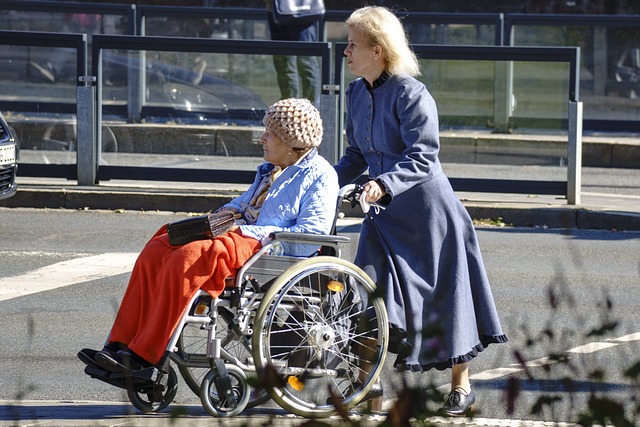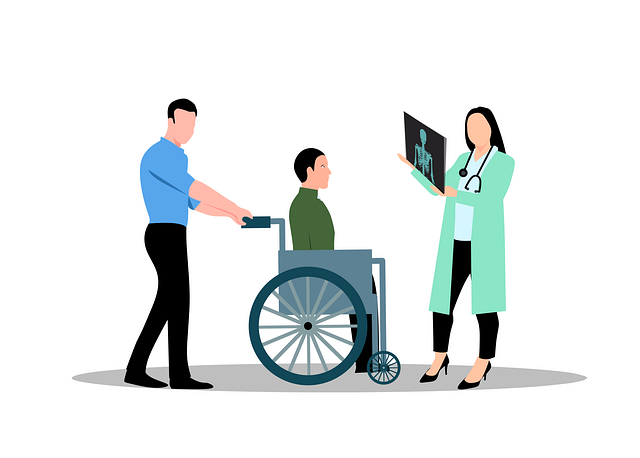As time marches on, the role reversal between parents and their children becomes inevitable. It’s a natural progression, one that demands compassion, understanding, and a deep commitment to the well-being of our aging loved ones.
As we navigate the delicate journey of caring for our aging parents and or relatives, it’s crucial to approach it with both sensitivity and practicality. In this blog post, we’ll explore how we can approach this by addressing their physical, emotional, and social needs.
1. Create Open Dialogue
Communication forms the cornerstone of any healthy relationship, and it’s no different when it comes to caring for aging parents. By initiating open and honest conversations about their needs, preferences, and fears, caregivers can build trust and make informed decisions that align with the wishes of their aging parents and relatives.
When you start to notice your parents can’t do everything on their own, say so! But do so in a way that is thoughtful and understanding. Below are some examples of sentences you can use to start tough conversations about caregiving:
- “(Mom/Dad/Name), I’ve noticed it’s a bit harder for you to do ______ (task). How are you feeling about it?”
- “I think it’s time we get you some help, what kind of tasks would it be best for you to have some assistance with?”
- “How are you feeling today? How can we help lower your stress levels?”
As you may have noticed, none of these conversation starters mention age, and they all allow your aging relative to continue to make decisions for themselves. Remember, this is their life, and they have feelings too. How would you feel if someone called you old and started taking charge of your life?
Of course, there are some situations where they may not be able to give input any longer (dementia, Alzheimer’s, etc), but we will come back to that later.
Facilitate Future Decision-Making
As aging parents may face health challenges or lifestyle changes, decisions about their care become paramount. Open dialogue ensures that caregivers are aware of their parents’ preferences regarding healthcare, living arrangements, and end-of-life choices.
As your parents age, you’ll want to bring these topics up. It might be difficult, but it needs to be done.
We recommend sitting down with your parents after a serious diagnosis (or after age 75, whichever comes first) and asking them what they want as they age. Write everything they say down and ensure they have a copy. This will help you both feel more secure as you navigate the future.
Work to Enhance Trust and Transparency
Trust is the bedrock of any healthy relationship, and in the context of caregiving, it is a two-way street. Open dialogue promotes transparency, allowing aging parents to express their needs and concerns openly.
You can foster this trust and transparency by not hiding any decisions or concerns from your aging relative. If you notice something is a struggle for them, ask about it! Never assume and never do anything without their permission, so they know you have their best interests in mind.

2. Work to Create a Supportive Environment
A supportive environment thrives on open communication. Caregivers should establish clear channels for dialogue, encouraging aging parents to express their concerns, desires, and preferences.
Regular communication ensures that any adjustments to the caregiving plan can be made promptly, fostering a collaborative and supportive relationship.
Promote Independence and Dignity
Aging parents often face physical limitations that can be addressed by modifying their living spaces. Creating a supportive environment begins with understanding the individual needs and limitations of aging parents.
It involves adapting the physical space to accommodate their changing requirements, ensuring safety, accessibility, and comfort. From installing handrails to rearranging furniture, these adjustments lay the foundation for a secure and supportive living space. A supportive environment contributes to their overall well-being and reduces the risk of accidents.
While physical support is crucial, it’s equally important to empower aging parents to maintain a sense of independence. Encouraging them to participate in daily activities, making decisions about their care, and respecting their choices fosters a sense of autonomy. A supportive environment should enhance their dignity, allowing them to navigate their daily lives with as much independence as possible.
Cultivating Emotional Well-being
Aging is not just a physical process; it brings about emotional challenges as well. A supportive environment recognizes and addresses the emotional needs of aging parents.
Providing companionship, engaging in meaningful conversations, and facilitating activities that bring joy contribute to their emotional well-being. A nurturing atmosphere promotes mental health and resilience in the face of the emotional complexities that come with aging.
There are several ways you can help provide companionship for your aging parents, and not all of them involve your time! We recommend looking for programs in areas your parent can walk to (such as a community center or community garden) as well as exploring online options, like Facebook groups and Zoom calls.
For more information, take a look at our list of resources for caring for aging parents.
3. Establish a Routine
Aging parents often find comfort in routine and predictability, especially if big changes are happening in their lives.
Establishing a consistent daily schedule can provide a sense of structure and stability, reducing stress and anxiety. From designated times for meals and medication to scheduled activities, a well-crafted routine provides a framework within which aging relatives can navigate their days with a sense of security.
Promote Physical and Mental Health
No matter what routine you help craft for your aging parent or relative, ensure it involves physical activities and time for your relative to connect with others socially.
For physical activities, consider adding walks after dinner or a Tai Chi class to the schedule at least once a week. You can also look into things like yoga and meditation classes.
For social and mental health, try to ensure one activity a week is with friends or family your relative enjoys spending time with. Encourage them to join a club or even make a standing coffee date with a close friend at least once a week!
Dietary Routine
Establishing a dietary routine can help ensure your aging relative is able to get all the nutrients they need each week. Consider creating a meal plan that will not only allow you to help them with food ordering and preparing, but it will also help your relative to feel confident they have a meal to eat when other things may not be going their way.
Once you have a meal routine, you can pass off some of the tasks involved, such as grocery shopping (order grocery delivery), meal preparation (you can actually hire people to meal prep for your aging relative), or meal ordering if you need to order from a service like Meals on Wheels which provides ready to eat dinners.
When our grandmother was still able to live alone but no longer able to cook, we had crockpot days, where we would come over and make a large crockpot of soup or pulled chicken and rice with her. We would eat the dinner together, and of course, there were tons of leftovers.
After we finished eating, we would help her portion out the leftovers so she would have dinner for at least 4-5 nights more. While she was still on her own for breakfast and lunch, this ensured she had at least one nutritionally balanced meal each day.
For the remaining two meals each week, one night, we would call to have something delivered from Panera or a similar restaurant, and for the other, she would eat with a friend. This ensured she knew what to expect every day of the week and was eating enough to stay healthy.

4. Prioritize Health and Wellness
Prioritizing health for aging parents goes beyond just addressing physical ailments; it encompasses their overall well-being. This includes mental, emotional, and social check-ins.
By adopting a holistic perspective, caregivers can tailor their approach to meet the diverse needs of their loved ones, promoting a balanced and comprehensive approach to health.
Regular health check-ups, a balanced diet, and adequate physical activity are essential components of maintaining your parent’s health.
Regular Health Check-Ups
Routine health check-ups are the foundation of proactive caregiving. Encourage them to attend medical appointments, adhere to prescribed medications, and engage in activities that promote physical and mental well-being.
Scheduling regular visits to healthcare professionals allows for the early detection and management of health issues. From monitoring blood pressure to conducting routine screenings, these check-ups serve as a preventive measure, ensuring that any potential health concerns are addressed promptly.
For relatives with a lot of health visits (and those who cannot drive), we recommend making a shared Google calendar that you and your relative can add to. If there is a hired caregiver in the mix, add them as well so everyone is on the same page on who needs to be where and when.
Medication Management
For many aging parents, managing multiple medications is a reality. Caregivers play a vital role in ensuring that medications are taken as prescribed.
You’ll want to do all of the following:
- organize pillboxes
- create a posted medication schedule (in the case of someone filling in for you)
- Add a list of phone numbers for emergencies (for example, an emergency number to call for a reaction to XX medication)
This becomes especially important when your relative begins to see specialists. While their general practitioner will be able to see what they are prescribed, typically, if there is a reaction to a medication prescribed by a specialist, the specialist is the one who needs to be contacted.
Encourage the Mind-Body Connection
The intricate connection between mental and physical health cannot be overstated. Activities that stimulate the mind, such as puzzles, reading, or engaging in hobbies, contribute to cognitive well-being.
One way to get your family member to engage in these is by adding them to the routine. Weekly puzzle nights with a friend or joining a book club that meets over Zoom can go a long way to encouraging your relative to turn off the TV.
Additionally, mindfulness practices like meditation and relaxation techniques can reduce stress, providing a positive impact on both mental and physical health.
Stress the Importance of Adequate Rest and Sleep
Quality sleep is crucial to good health, especially as we age. Caregivers should ensure their loved ones have a conducive sleep environment and establish a consistent bedtime routine.
When you schedule activities, ensure they end at a reasonable time for your senior to get the rest they need. Remember, be open when you talk with them about healthy sleep and be ready to offer suggestions but don’t force the issue.
5. Embrace Technology
In today’s digital age, technology can be a powerful ally in caring for aging parents and is becoming more than just a convenience – it’s a necessity.
Explore options like wearable devices that monitor vital signs, medication management apps, and video calling for remote communication.
Embracing technology can bridge the gap between physical distances and provide a sense of security for both you and your parents as you transition to the role of caregiver.
Improve Communication
One of the primary advantages of introducing aging parents to technology is the enhancement of communication. In an era where instant messaging, video calls, and social media connect us across distances, helping our elders navigate these platforms fosters a sense of connection.
It reduces feelings of isolation and allows them to stay in touch with friends and family, promoting emotional well-being.
Ensure your parent has a communicative device and that they know how to use it. It can be helpful to help them download the programs you want them to use, and practice once while you are with them, to help overcome the frustration they may feel using a new digital platform.
Give them Access to Services
Technology can significantly contribute to the independence of aging parents. Online banking, grocery delivery services, and telehealth consultations are just a few examples of how embracing technology can make their lives more convenient.
These tools not only streamline daily tasks but also allow our elders to maintain a level of autonomy in managing their affairs.
Help your relative download the apps they may need, such as Uber or the app for their doctor’s office, and show them how to set it up and use it.
6. Foster Social Connections
Isolation and loneliness can be significant challenges for aging parents. Actively encourage and facilitate social interactions, whether through community events, clubs, or simply spending quality time with friends and family. Maintaining social connections contributes to emotional well-being and helps combat feelings of loneliness.
- Identify Interests and Hobbies: Begin by discovering the unique interests and hobbies of your aging parents or relatives. Whether it’s art, music, or gardening, encouraging participation in activities aligned with their passions can lead to natural connections with like-minded individuals.
- Explore Community Programs: Local community centers often host a variety of programs tailored for seniors. From fitness classes to book clubs, these programs provide an excellent opportunity for social interaction. Research available options and help your loved ones find activities that resonate with their preferences.
- Encourage Volunteer Opportunities : Volunteering is not only a meaningful way to contribute to the community but also a fantastic avenue for building social connections. Identify causes or organizations aligned with your loved one’s values and assist them in getting involved. Look for volunteer opportunities for your relative at their church, community center, or local food bank.
- Encourage Social Media Usage : In today’s digital age, social media platforms can be powerful tools for connecting with friends and family. Guide your aging parents in using platforms like Facebook or Instagram to stay in touch, share experiences, and reconnect with old acquaintances.
- Host Family Gatherings : Facilitate family gatherings or events, creating opportunities for your aging parents or relatives to reconnect with family members. These gatherings not only strengthen family bonds but also offer a sense of belonging and support.

7. Discuss Legal and Financial Planning
Take the time to address legal and financial matters while your parents are still capable of making decisions. This includes establishing power of attorney, discussing their wishes regarding medical treatment, and organizing their financial affairs. Being proactive in these areas ensures that their preferences are honored and eases the burden on you as a caregiver.
- Identify Key Legal Documents : Assist your aging parents or relatives in organizing and updating essential legal documents. This includes wills, powers of attorney, and healthcare directives. Ensuring these documents are current and accessible is vital for clarity and adherence to their wishes in the future.
- Explore Long-Term Care Options: Investigate long-term care insurance options and discuss the potential need for assisted living or nursing care. Understanding the financial implications and having a plan in place for potential long-term care needs is essential for comprehensive legal and financial planning.
- Review and Organize Finances : Work together to review and organize their financial affairs. This includes documenting assets, liabilities, income sources, and expenses. Establishing a clear financial picture allows for better planning and ensures that resources are managed effectively.
- Consult with Financial Advisors : Engage the services of financial advisors to provide professional guidance. A financial advisor can help optimize investments, plan for retirement, and address tax implications. Their expertise ensures that your aging parent’s financial resources are managed in a way that aligns with their goals.
- Establish Emergency Funds : Help your loved ones establish emergency funds for unexpected expenses or healthcare needs. Having a financial cushion provides a sense of security and minimizes stress in times of crisis.
8. Respite Care for Caregivers
Caring for aging parents can be emotionally and physically demanding. Recognize the importance of self-care and consider respite care options for yourself and any other caregivers.
Whether through professional caregivers, support groups, or family members, taking breaks is crucial for maintaining your own well-being and, in turn, providing better care for your loved ones.
9. Stay Informed and Seek Professional Guidance
The field of elderly care is continually evolving, with new resources and information becoming available. Stay informed about advancements in healthcare, caregiving techniques, and support services.
Additionally, don’t hesitate to seek professional guidance when needed, be it from healthcare professionals, social workers, or support groups.
Conclusion
Caring for aging parents is a multifaceted journey that demands empathy, compassion, adaptability, and a commitment to providing the best possible quality of life. Embracing technology, establishing routines, and fostering social connections contribute to a holistic approach to elderly care.
By fostering open communication, creating a supportive environment, and prioritizing health and wellness, we can navigate this path with grace.
Through thoughtful caregiving, we not only honor our aging parents and relatives but also set an example for generations to come.


















